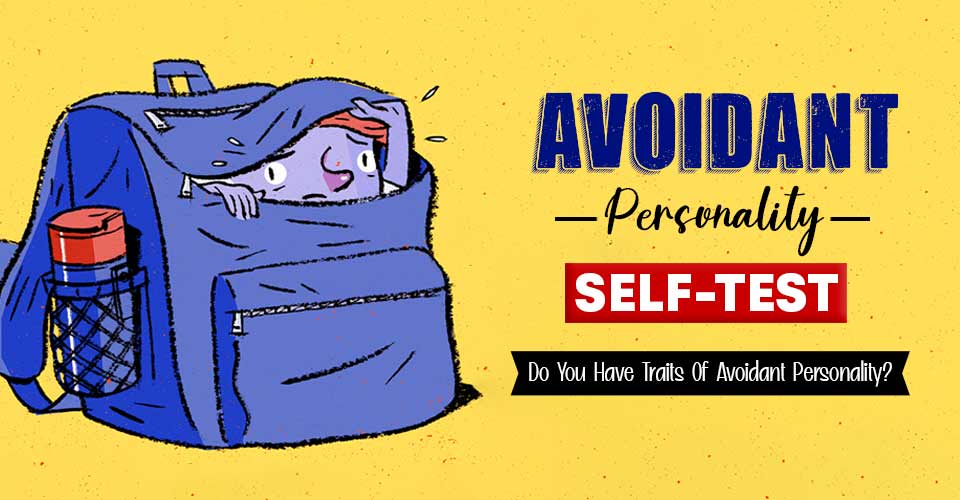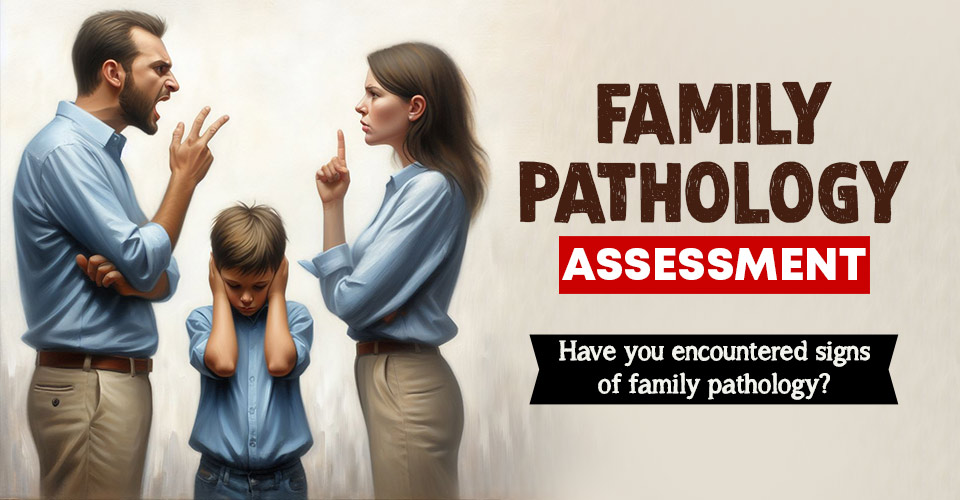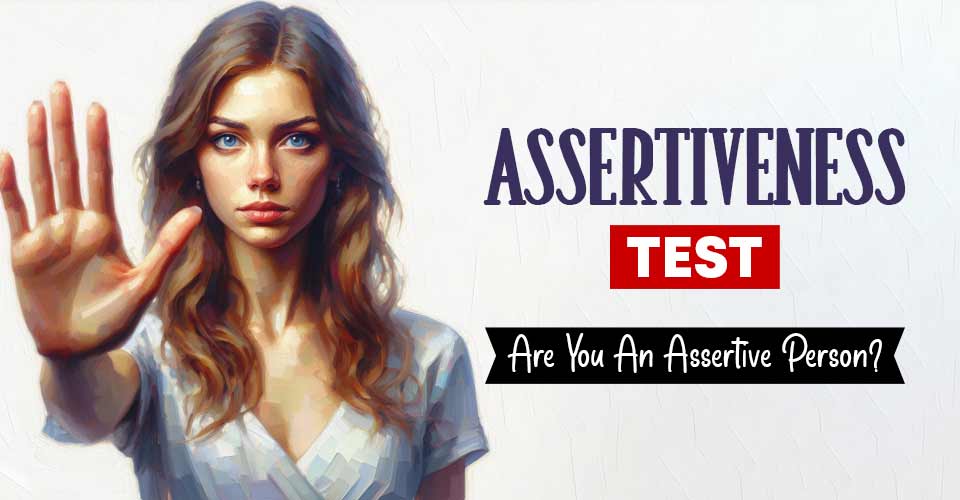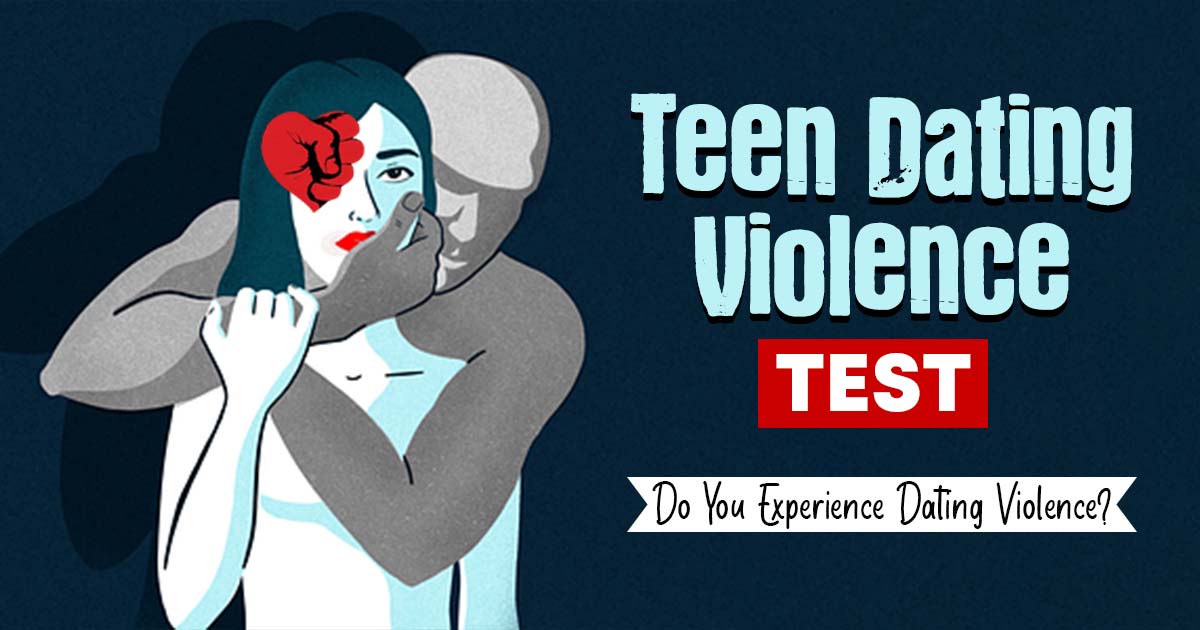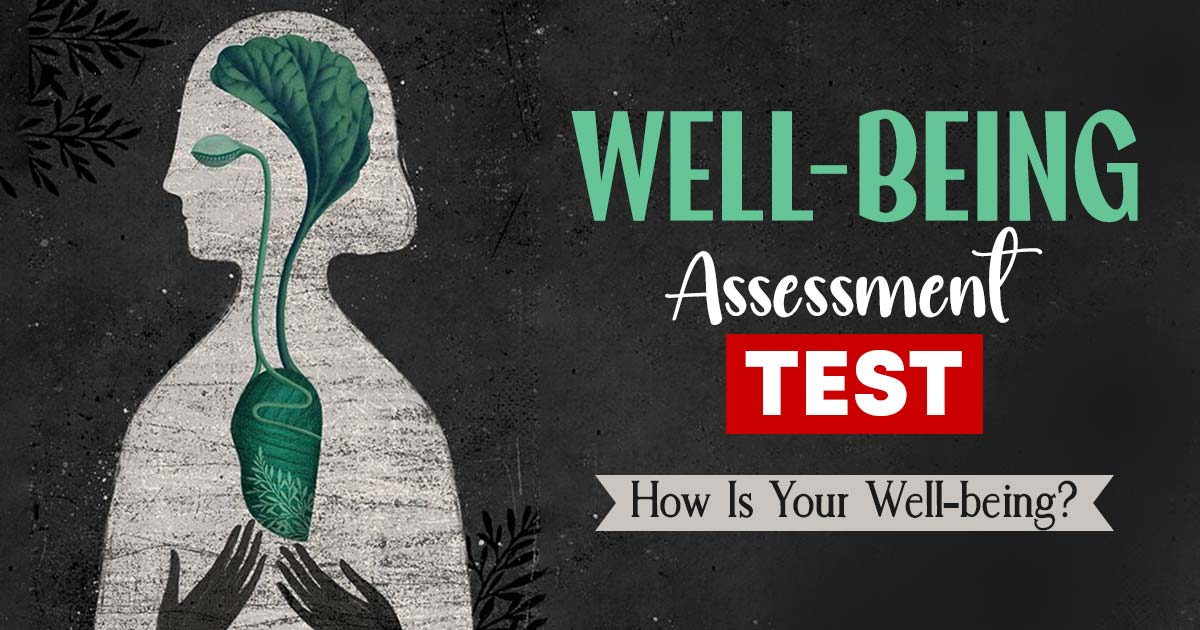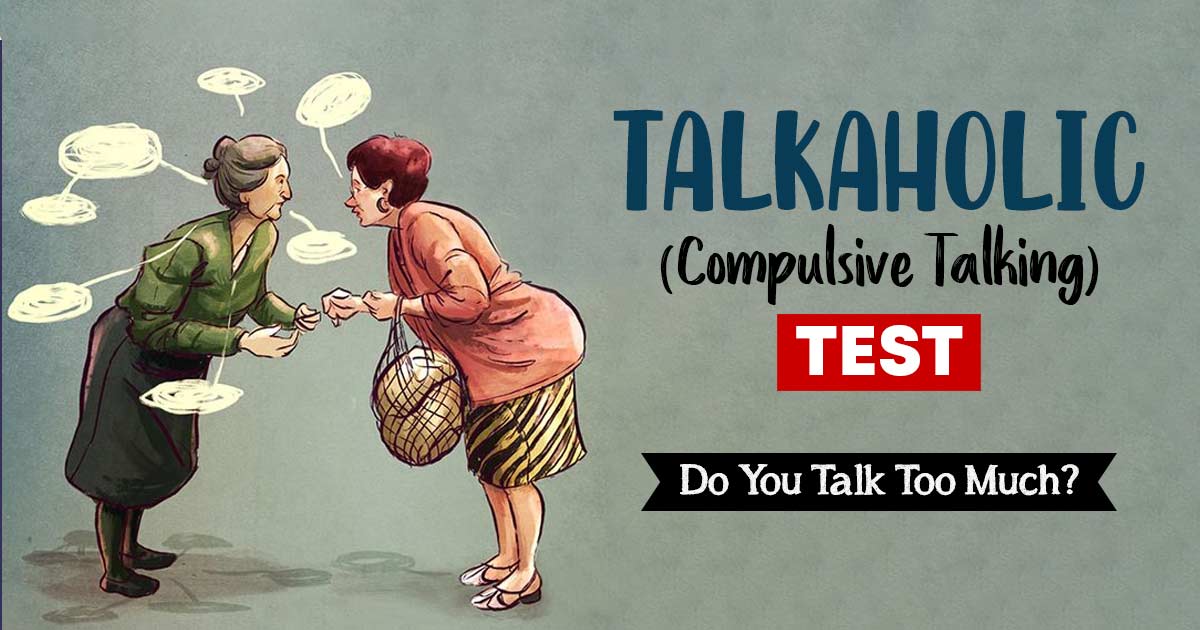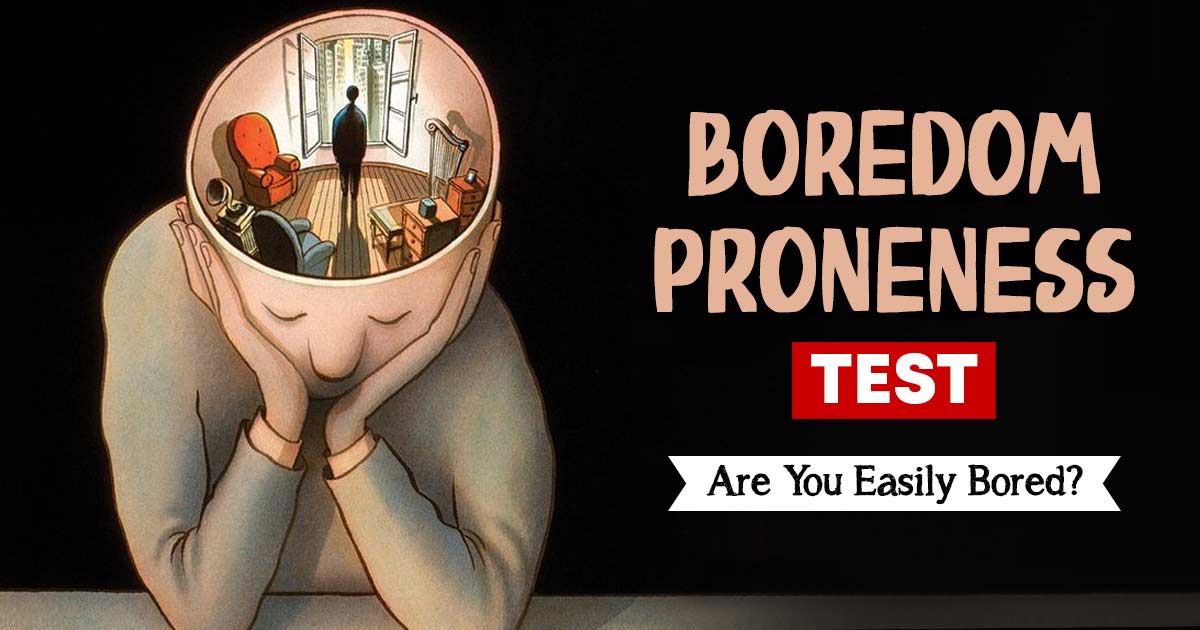Do you tend to avoid social situations with a fear of rejection or a sense of inadequacy? Do you usually consider yourself to be inferior to the other people around you?
Do you avoid meeting new people and only surround yourself with your known close ones? Use this Avoidant Personality Disorder Test to better understand whether you ought to have traits of an Avoidant Personality or not.
What is Avoidant Personality Disorder (AVPD)?
An avoidant personality disorder is a mental health condition characterized by enduring patterns of behavior out of keeping with cultural norms that cause suffering for an individual or those around them.
The traits of this personality pattern include feelings of extreme social inhibition, inadequacy, and sensitivity to negative criticism and rejection. These people are found to be highly sensitive to being negatively judged by others.
These traits cause significant problems that affect the ability to interact with others and maintain relationships in day-to-day life. Symptoms of this disorder are usually noticed in childhood and often begin to create discomfort in adolescence or early adulthood.
Read More About Avoidant Personality Disorder Here
Instructions For Taking Avoidant Personality Disorder Test Online
A list of questions is mentioned in this Avoidant Personality Self-Test which is related to life experiences that are common among people who have Avoidant Personality Traits. Please read each question carefully, and indicate how often you have experienced the same or similar signs.
Please note: This is not a diagnostic tool and is only meant for self-assessment.
Assessment Summary
0 of 20 Questions completed
Questions:
Information
You have already completed the assessment before. Hence you can not start it again.
Assessment is loading…
You must sign in or sign up to start the assessment.
You must first complete the following:
Results
Results
Your time:
Time has elapsed
You have reached 0 of 0 point(s), (0)
Earned Point(s): 0 of 0, (0)
0 Essay(s) Pending (Possible Point(s): 0)
Categories
- Mental Health Assessment 0%
-
No/Minimal Signs Of Avoidant Personality
Your score indicates that you have no such significant traits of an Avoidant Personality. You seem to have well-maintained social relations with others around you and you seem to involve in social gatherings without feeling much embarrassed about yourself. You also seem to take up responsibilities according to your social need and do not significantly get scared in the fear of rejection or criticism on social occasions.
However, it should be noted that this is just a screening tool and not meant for proper medical diagnosis. If you think the results do not accurately represent your thoughts and feelings, then we would encourage you to consult a mental health professional for accurate diagnosis and treatment.
Want to learn more?
Do you want to learn more about AVPD? Psychotherapy is recommended as the most effective treatment for AVPD. Among these psychodynamic psychotherapy or cognitive behavioral therapy is usually applied in this case. The goal of therapy is to help you identify an individual’s unconscious beliefs about themselves and the perception of how others treat them. The therapy aims to help the individual to function better in different areas of life. Our team of qualified practitioners can help determine whether you have any difficulties that require treatment. Please contact our psychologists for a full and accurate diagnosis.
You can use our Mood Tracker to stay mindful of your mood every day, identify your innermost thoughts & emotions on a daily basis. It will aid you in doing all the things you love, while limiting activities that might dampen your mood.
-
Low Signs Of Avoidant Personality
Your score indicates that you have low significant traits of an Avoidant Personality. Your response shows that you have slight difficulties managing adequate social relations with others around you and you seem to involve in social gatherings with a little avoidance tendency and with a little feeling of hesitation, and shyness during communication with other people. You might also show a few difficulties to take up responsibilities according to your social need and may get scared thinking about the fear of rejection or criticism on social occasions.
However, it should be noted that this is just a screening tool and not meant for proper medical diagnosis. If you think the results do not accurately represent your thoughts and feelings, then we would encourage you to consult a mental health professional for accurate diagnosis and treatment.
Want to learn more?
Do you want to learn more about AVPD? Psychotherapy is recommended as the most effective treatment for AVPD. Among these psychodynamic psychotherapy or cognitive behavioral therapy is usually applied in this case. The goal of therapy is to help you identify an individual’s unconscious beliefs about themselves and the perception of how others treat them. The therapy aims to help the individual to function better in different areas of life. Our team of qualified practitioners can help determine whether you have any difficulties that require treatment. Please contact our psychologists for a full and accurate diagnosis.
You can use our Mood Tracker to stay mindful of your mood every day, identify your innermost thoughts & emotions on a daily basis. It will aid you in doing all the things you love, while limiting activities that might dampen your mood.
-
Moderate Signs Of Avoidant Personality
Your score indicates that you have moderate significant traits of an Avoidant Personality. Your response shows that you have some difficulties managing adequate social relations with others around you and you seem to involve in social gatherings with an avoidance tendency in some cases and with a feeling of hesitation, and shyness during communication with some people. You might also show some difficulties to take up responsibilities according to your social need and may get scared on some social occasions thinking about the fear of rejection or criticism. These traits might also impair your functioning of daily life in a few areas.
However, it should be noted that this is just a screening tool and not meant for proper medical diagnosis. If you think the results do not accurately represent your thoughts and feelings, then we would encourage you to consult a mental health professional for accurate diagnosis and treatment.
Want to learn more?
Do you want to learn more about AVPD? Psychotherapy is recommended as the most effective treatment for AVPD. Among these psychodynamic psychotherapy or cognitive behavioral therapy is usually applied in this case. The goal of therapy is to help you identify an individual’s unconscious beliefs about themselves and the perception of how others treat them. The therapy aims to help the individual to function better in different areas of life. Our team of qualified practitioners can help determine whether you have any difficulties that require treatment. Please contact our psychologists for a full and accurate diagnosis.
You can use our Mood Tracker to stay mindful of your mood every day, identify your innermost thoughts & emotions on a daily basis. It will aid you in doing all the things you love, while limiting activities that might dampen your mood.
-
High Signs Of Avoidant Personality
Your score indicates that you have highly significant traits of an Avoidant Personality. Your response shows that you have strong difficulties managing adequate social relations with others around you and you seem to involve in social gatherings with an avoidance tendency in many cases and with a feeling of hesitation, and shyness during communication with most people around you. You might also show strong difficulties to take up responsibilities according to your social need and may get scared on most of social occasions thinking about the fear of rejection or criticism. These traits might also impair your daily functioning in many areas of life.
However, it should be noted that this is just a screening tool and not meant for proper medical diagnosis. If you think the results do not accurately represent your thoughts and feelings, then we would encourage you to consult a mental health professional for accurate diagnosis and treatment.
Want to learn more?
Do you want to learn more about AVPD? Psychotherapy is recommended as the most effective treatment for AVPD. Among these psychodynamic psychotherapy or cognitive behavioral therapy is usually applied in this case. The goal of therapy is to help you identify an individual’s unconscious beliefs about themselves and the perception of how others treat them. The therapy aims to help the individual to function better in different areas of life. Our team of qualified practitioners can help determine whether you have any difficulties that require treatment. Please contact our psychologists for a full and accurate diagnosis.
You can use our Mood Tracker to stay mindful of your mood every day, identify your innermost thoughts & emotions on a daily basis. It will aid you in doing all the things you love, while limiting activities that might dampen your mood.
- 1
- 2
- 3
- 4
- 5
- 6
- 7
- 8
- 9
- 10
- 11
- 12
- 13
- 14
- 15
- 16
- 17
- 18
- 19
- 20
- Current
- Review
- Answered
- Correct
- Incorrect
-
Question 1 of 20
1. Question
I tend to avoid activities that involve working closely with others because of the fear that other may criticize or reject my ideas.
-
Question 2 of 20
2. Question
I dislike making new friends unless I’m certain that they like me
-
Question 3 of 20
3. Question
I find it difficult to talk about my feelings with my partner for fear of being judged and unaccepted
-
Question 4 of 20
4. Question
I don’t feel good enough and I think whatever I would say will be considered as stupid
-
Question 5 of 20
5. Question
I worry about blushing or crying in front of others in response to criticism.
-
Question 6 of 20
6. Question
I hate taking risks because I fear embarrassing myself
-
Question 7 of 20
7. Question
I avoid jobs that require communication with people in fear of criticism or disapproval
-
Question 8 of 20
8. Question
People tell me I’m way too harsh on myself.
-
Question 9 of 20
9. Question
I have low self esteem
-
Question 10 of 20
10. Question
I tend to get sensitive to rejection
-
Question 11 of 20
11. Question
I find it difficult to approach someone new or start a conversation
-
Question 12 of 20
12. Question
I try to avoid public spaces or social gatherings out of fear that someone might criticize me.
-
Question 13 of 20
13. Question
I feel socially inept, personally unappealing, or inferior to others.
-
Question 14 of 20
14. Question
I am hypersensitive to other people’s emotions
-
Question 15 of 20
15. Question
I tend to daydream a lot.
-
Question 16 of 20
16. Question
I tend to avoid emotional involvement that could cause pain and anguish.
-
Question 17 of 20
17. Question
I only want to meet people when I am certain that they like me.
-
Question 18 of 20
18. Question
I feel lonely/isolated even in a situation where I could be having fun.
-
Question 19 of 20
19. Question
I feel uninvolved even when others are able to accept my presence willingly.
-
Question 20 of 20
20. Question
I avoid taking major responsibilities for my family, future career, and other aspects of life due to the fear that I might lose fulfilling these duties.

